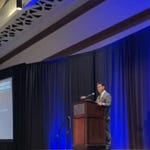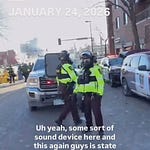We’ve marched for others. We’ve stood in solidarity. But when our own community is targeted, the silence is deafening. After the El Paso massacre, there was no sweeping reform. After raids ripp families apart, there’s barely outrage beyond our own circles. This is what invisibility feels like in America—being told, in so many words, that justice has limits.
By Nick Valencia | August 1, 2025
ATLANTA— Where is our support?
Where are the crowds in the streets?
Where is our reform?
These aren’t rhetorical questions—they’re a gut‑check. And the fact that they even need asking says everything about the way our community has been sidelined.
We’ve watched the country rise up for others, pass laws for others, reckon with its history for others. But when the violence came for us—when the shooter in El Paso openly admitted he was hunting people who looked like us—the streets stayed quiet.
After the spa shootings in Georgia and the wave of anti‑Asian hate during the pandemic, Congress acted. Laws were written—rightfully so—to protect our Asian brothers and sisters.
After George Floyd was murdered by a police officer who knelt on his neck until he stopped breathing, millions filled the streets. That movement brought a moral clarity that reshaped the national conversation about race and proximity to whiteness.
I was grateful for that. I still am. Because I know for a fact what has always been true— it doesn’t matter how “White” you present yourself, the darker your skin, the harder this country makes life for you.
But where does that leave us?
Part of what made my heart so full this June was seeing Asian, Black, White and Brown communities standing shoulder to shoulder in the streets of Los Angeles. I saw allies, unity, and hope. For a moment, it felt like we were all marching toward the same horizon.
But as quickly as the streets filled, they emptied again.
The raids haven’t stopped. There was a brief pause when a judge ruled that racial profiling couldn’t be the main factor for detentions, but the federal machinery grinds forward. Videos of families being torn apart still circulate online.
And yet, when we ask people to look directly at the racism and inequality that persists against Latinos, the world seems to look away.
Third-generation Mexican-American Kristian Ramos, a political analyst and Democratic strategist, put it perfectly on our show this week: for the generational Latino, living in America can feel like living in an undiscovered country—a place where we’re citizens in every sense, yet still treated like strangers.
Forget the label of “alien.” Some days it feels like we’re from another planet entirely, untranslatable to the broader culture. People don’t quite know what to make of us—Brown faces who love literature, speak flawless English, and in many cases, like Kristian and me, are third‑generation Americans still tied to our Mexican roots. That tie isn’t just about rolling our “R’s”—it’s about living in a constant duality. We have our feet firmly in American culture and care deeply about the social justice issues that shape it. And yet here we are, still wondering when people will stand for us in the same numbers they have—rightfully so—for our brothers and sisters.
The last five years have been especially brutal. You can argue our community was hit hardest: disproportionately affected by the pandemic, overrepresented on the frontlines, worn down by what we saw, experienced, and lived. We emerged from that moment asking who would help us. Now, years later, we find ourselves asking the same question.
Last week, I felt that silence up close. I was out on the Atlanta Beltline, trying to get man‑on‑the‑street interviews about immigration and ICE raids. Two dozen people turned me down. Some were shy, sure. Some didn’t want to be on camera. But I couldn’t help but wonder if they simply didn’t care.
That kind of indifference cuts deeper than anger.
Just as I was about to give up, I looked down at my feet trying to ground myself, and saw the words painted on the pavement in fading yellow: Black Lives Matter.
Yes, they do. Thank God they do. But if we believe justice can’t be selective, then it must reach every street, every family, every shade of skin. The same moral clarity that tells us some lives cannot be disregarded must also compel us to see those still being ignored. Because if we’re serious about justice, it can’t stop at the edge of our own experience. If we mean what we say about equality, then it must include the people still waiting to be seen.











